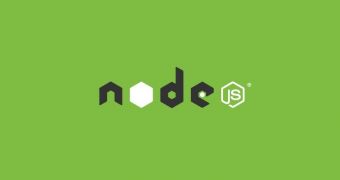After waiting four months following the May announcement, version 4.0.0 of Node.js, the first branch to contain the io.js code, has been released for production usage.
The release came three days after the first RC (Release Candidate) was first offered for download, and after the Node.js Foundation also announced its first ever Board of Directors.
Finally, Node.js is whole again
"This release represents countless hours of hard work encapsulated in both the Node.js project and the io.js project that are now combined in a single codebase," said the Node.js team in an official statement.
This is a far cry from what the Node.js community was at the beginning of the year, when the project's developers chose camps and either sided with the original Node.js team, or they jumped ship and decided to contribute to the io.js project.
With 100 new developers contributing code to the Node.js core since version 0.12.7 was released, most of which are the former io.js team, everything is back as it once used to be, and Node.js can continue in conquering the rest of the Internet.
What's new in Node.js 4.0.0
As for what's new in the first ever Node.js-io.js merged version, developers will find expanded support for ES6 features, most of which are enabled by default.
This includes support for ES6 classes, typed arrays, generators, promises, symbols, collections, arrow functions, block scoping, and template strings.
Additionally, V8, the JavaScript engine at the heart of Google Chrome and Node.js, has also been updated to version 4.5, the same version that ships with today's Chrome browser.
IoT (Internet of Things) addicts are also going to be delighted with Node.js 4.0.0, since the platform expanded its ARM support and now caters to ARMv6, ARMv7 and the new 64-bit ARMv8 processors.
Node 4 will enter a period of 18 months of LTS (Long-Term Support), after which, for another period of 12 months, the 4.x branch will receive security and critical fixes.
Work on Node.js 5.x has already started.
You can find a summary of download links for Node.js on Softpedia, or you can download Node from its official website, or GitHub repository.

 14 DAY TRIAL //
14 DAY TRIAL //